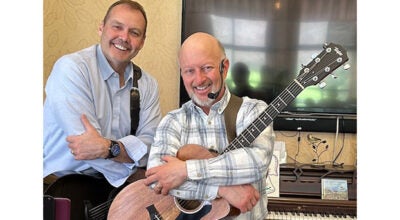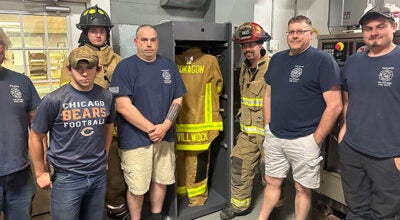Council discusses using city property for affordable housing
Published 9:29 am Wednesday, October 10, 2018
NILES — During a Committee of the Whole meeting Monday night, members of the city council were thinking small — a small house that is.
Community Development Director Sanya Vitale proposed an idea to turn two vacant properties into the location for a small house. Vitale said the structure would seek to fill an affordable housing need and be given to a qualified person through a lottery-style process. In exchange, the recipient would have to pay property taxes and homeowner’s insurance.
The properties are located at the corner of Eighth and Sycamore streets and measure about 5,000 square feet combined. Two blighted homes were demolished at the site after the property owner came to the city for help. Funds from the Community Development Block Grant were used to fund the demolition.
Vitale said the property owner was a senior who said they could not care for the property themselves. Now, the property owner is considering giving the property to the city free of cost to be used for the project. There is one potentially interested buyer in the property, according to Vitale.
Tiny houses have become a trendy alternative to a full-sized house, often offering the owner a cost-effective solution to a full-blown mortgage, freedom to be mobile and energy efficiencies.
Southwestern Michigan College students, under the guidance of professor Larry Wilson, built a small house for a building trades project, that Vitale is eyeing for the lot. Wilson was present at Monday night’s meeting and said while he could not speak on behalf of the college, he thought it could be a potential use for the structure that students hand-crafted. The 504-square-foot home is not considered a tiny house, as a tiny house is built on an RV frame and is built to RV code. The idea for the small house is similar to that of a tiny house, in that it has all necessities built into a compact space.
Wilson said the home is built to Michigan residential code and includes a movable wooden foundation, one bedroom, a bathroom, kitchen, and living space, as well as water heater and electric-heated base boards. There is also room in the home for a stackable washer and dryer. He said he would have to receive all necessary permissions from the college to move forward with the idea.
City administrator Ric Huff approximated that the cost to purchase the small house would be around $30,000. Funds from the Community Development Block Grant could help cover the cost.
Vitale said there would be a few hurdles into getting the project approved, including re-writing the Action Plan which outlines the use of Community Development Block Grant funding for each fiscal year. Once re-written to reflect the project, Vitale said it would have to be approved. Other zoning approvals would also be needed.
“I spoke with a Housing and Urban Development representative and it is going to take a little bit of work, if we decide to do this,” Vitale said. “But it is one of those projects that could get some attention, because not a lot of communities or programs offer projects like this.”
Remembering longtime community advocate Jan Personette, who was honored at Monday’s meeting following her passing Saturday, Vitale said Personette had been an advocate of affordable housing. She even said, if approved, they could name the housing project after her.
“I think this would be an amazing project for us,” Vitale said. “It would be one of the first times we have ventured out and provided affordable housing, instead of repairing a house that is in relatively poor condition. This time we would be giving somebody somewhere to stay.”
Vitale said her effort Monday night was to see if council members would be interested in pursuing the project.
City council members seemed largely on board. Most of their questions focused on logistical aspects of the project.
Council member Gretchen Bertschy asked what the foundation for such a small structure would look like.
Huff said the building would most likely not have a basement, but a crawl space.
John DiCostanzo said he felt it was worth pursuing.
“I think it’s great idea,” DiCostanzo said. “I am all for it.”
He prompted Vitale to look at water, sewer and utility costs for the home.
Mayor Nick Shelton said even if the property at Eighth and Sycamore streets becomes unavailable, the city has other properties where the idea could be implemented.






